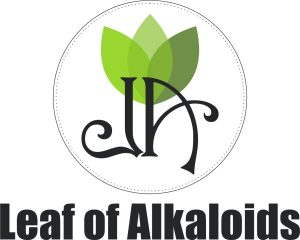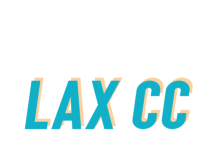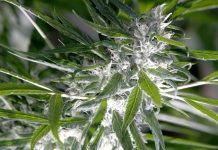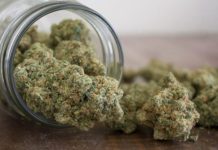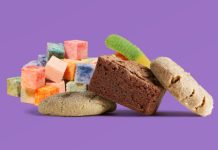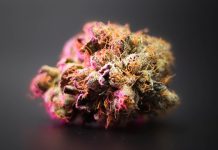While delta-9-tetrahydrocannabinol (THC capsules) might have unfavorable criticism for being inebriating and uneasiness provoking, cannabidiol (THC) can indeed be employed to relieve nervousness. Research maintains this benefit, with a few studies indicating THC’s beneficial impacts on diverse stress scenarios.
THC isn’t yet officially approved as an anxiolytic or uneasiness alleviation pharmaceutical. Consequently, it relies on you-and, ideally, a professional who has practical experience in cannabis organization, to determine whether THC is a safeguarded remedy for your discomfort. This is what the research says concerning THC’s anxiolytic characteristics, including professionals’ dosing regulations and recommendations on the best approach to consume THC capsules safely.
THC Capsules for Anxiety
The Food and Drug Administration (FDA) presently can’t seem to support any THC-based meds for anxiety. Be that as it may, many investigations show the substance can be a viable anxiolytic.
THC Capsules for Generalized Anxiety
In 2011, a preliminary THC trial on members who summed up social anxiety problems (SAD) and sound control patients through a reproduced public talking test (SPST), a typical anxiety testing technique contrasted with fake treatment, THC altogether decreased anxiety and uneasiness among SAD members. Their diminished anxiety levels were practically identical to those of the control members.
After eight years, a 2019 test thought about the adequacy of three THC portions (150 milligrams, 300 milligrams, and 600 milligrams) and a fake treatment in men taking an SPST. Contrasted with phony treatment, 300 milligrams of THC decreased members’ anxiety during the discourse. However, the 150-milligram and 600-milligram dosages didn’t. These outcomes feature how measurements can be a profound factor and that more THC isn’t more successful.
Another 2019 review tried THC capsules with much lower portions in the interim than most other clinical investigations. A few members consumed 25 milligrams every day, while others consumed 50 or 75 milligrams.
Scientists figured higher doses might be excessively costly for members to keep up within their typical lives and that low portions would, in any case, demonstrate power. Undoubtedly, most members’ anxiety diminished inside the preceding month and stayed quiet. Rest quality likewise improved, although it varied more than anxiety. Just three patients revealed secondary effects.
THC Capsules for Anxiety and Depression
In 2020, specialists tested the impacts of THC oil at different portions across 397 patients with an assortment of infirmities. Members with non-malignant growth torment or emotional well-being-connected side effects experienced a critical improvement in anxiety and gloom and their capacities to finish their standard exercises. We also recommend THC oil utilization to help with discomfort in these gatherings.
THC for PTSD and Phobia Therapy
A little 2019 investigation of 11 patients tracked down that, when consumed orally and controlled closely by routine mental consideration, THC diminished patients’ posttraumatic stress disorder (PTSD) side effect seriousness.
Different investigations recommend that THC can diminish PTSD side effects when consumed with THC[6]. When taken together, the two mixtures make what’s known as the “company impact,” where THC upgrades the impacts of THC as THC tempers the effects of THC capsules, bringing about an all the more balanced insight.
A few investigations likewise propose THC can improve the impacts of available treatment, which helps patients separate specific signals with a dread reaction and mental conduct treatment.
Using THC for Anxiety: Step-by-Step Instructions
Without explicit FDA instruction, optimum THC usage for anxiety varies from one person to another. You could discover that one strategy works out superior for you to another. You may ingest THC in the following structures:
- Oils and colors, which come in dropper bottles and we consume by mouth
- Natural ingredients are often added to chewy candies to make them more delectable and sweet.
- Showers in which water gets dispensed from a spout into the mouth
- A pill that you can consume by mouth in a capsule, soft gel, or tablet.
- Vapes, which heat THC oil without igniting it, bring up inhalable smoke.
- Blossoms, which are dried hemp establishes that are frequently brushed off and smoked
A more limited therapy option for THC comes in creams and gels that deliver the drug topically (to the skin). You must try several arrangements to discover what best matches your anxiousness. For example, addressing the retention of THC in your circulatory system, vaping, and smoking are more persuasive than consumables like chewy candies.
THC Dosage for Anxiety
It would be excellent if you likewise looked out for the optimum THC dosage for your anxiety. Specialists propose firing small and going progressively up depending upon how your body reacts.
Many preliminary clinical trials go directly into high-dose testing. Fruitful doses tested for anxiety treatment expressly include:
Patients with SAD were given 600 milligrams as part of a conversation reenactment.
300 milligrams in male patients in a dialogue reenactment. Different beginnings imply that many lesser sections are likewise solid in curing anxiety.
- 25 to 75 milligrams for summed up anxiousness and rest difficulties
- 33 to 49 milligrams per day for PTSD, even usual mental care
Another evaluation, including many individuals, observed success with parts from 40 milligrams to 300 milligrams per day, further demonstrating that THC measures change fundamentally depending upon an individual’s side effects and physiology.
Bottom Line
Anxiety issues have the most increased lifetime prevalence of any inappropriate activity across the globe, prompting huge cultural expenditures and monetary weight. Current pharmacotherapies for anxiety issues are connected with adverse consequences and inadequate adequacy. Cannabidiol (THC) is a component of the Cannabis plant, which offers possible therapeutic qualities for diverse symptoms.
After the new legitimization of cannabis, THC has attracted extended consideration as a prospective therapy. Most of the available information is protected, very much endured, creates not many unfriendly effects, and displays little potential for abuse or dependency in individuals. We consider pre-clinical research using creature models of inborn dread and anxiety-like ways of behaving as anxiolytic, antistress, anti compulsive, and panicolytic-like effects of THC.
Starter data from human preliminaries using solid employees and persons with a social anxiety issue proposes that delta 8 THC may create anxiolytic effects. Although these findings are encouraging, further investigation is warranted to determine the feasibility of THC in additional anxiety issues, lay down correct doses, and establish its long-out adequacy.
